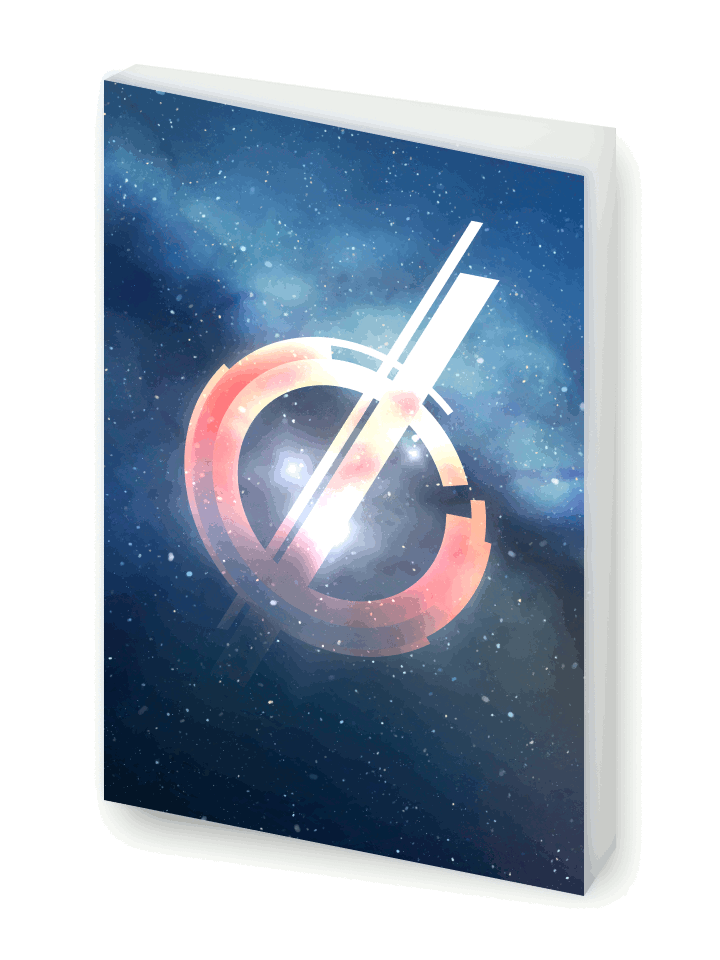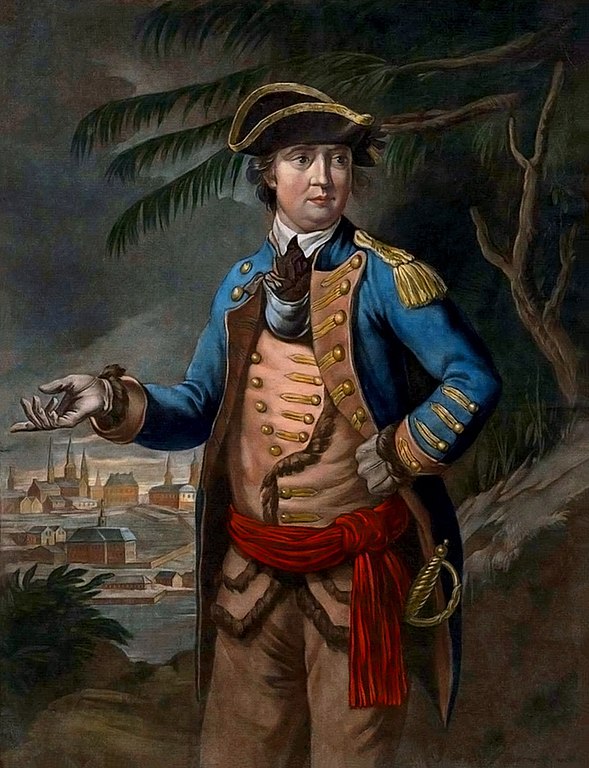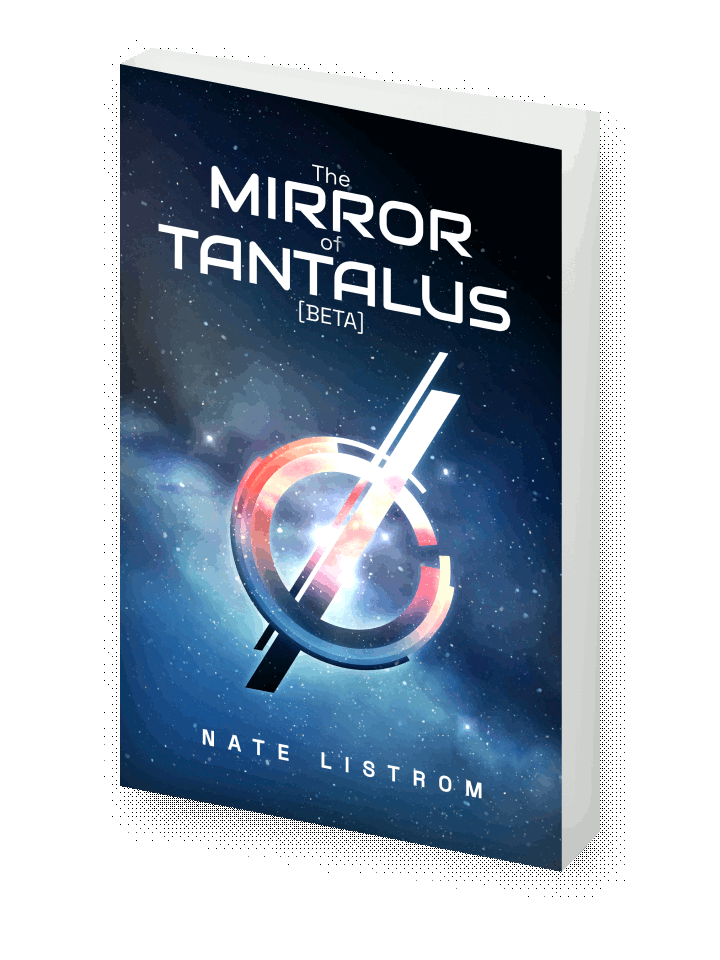Naming is hard: The making of ‘The Mirror of Tantalus’ (part five)
Summary: The story of how I iterated through different working titles for my novelette, ‘The Mirror of Tantalus’

This is the fifth note in a little “making of” series about the development of my novelette, The Mirror of Tantalus. I love listening to artists talk about how they developed their work. You can learn so much from the chronicle of the ups and downs, the false starts and dead-ends, the discoveries made along the way. Hopefully, hearing a bit of my journey will be useful to you on yours.
In the previous note, I talked about how I worked with an editor and did further refinements that brought the story to its current state. In this note, I’ll switch gears a bit and talk about a specific area that I struggle with a lot: naming.
What’s in a name?
Tantalus has gone through a number of different titles over the course of its development.
As I worked through various iterations of the story, I discovered that the name had several things it needed to do. Early on, I was just looking for something that felt interesting. Later, as I discovered more what the story wanted to be, I wanted the title to have thematic resonance. My criteria shifted from feeling to meaning.
Then, as I got closer to publishing, I felt that the title would also need to be viable for the market. It needed to be unique enough to help the story stand out, interesting enough to make potential readers curious, and familiar enough that people wouldn’t have trouble remembering it or searching for it.
Easy, right?
Aliens, rivers, muskets, Oh my!
My first working title for the piece was “Final Contact.” This was a vague play on the idea of alien first contact stories. Tantalus isn’t an alien story. (Those don’t interest me terribly much, personally.) But there are moments in the story when the characters suspect Tantalus could have alien origins, so I thought it could be an interesting red herring. And then, of course, there’s the idea of Charis’ sending messages to herself as an interesting twist on “contact.”
Once I had the name for the ship, I thought about calling the story “Confluence.” That has a nice double meaning. In the story world, it’s meant to be a nod to the fact that the two sides are working together. Their separate “streams” are coming together. But in terms of double entendres, there’s another layer since the two timelines — one running forward and the other running back — converge at the moment when they pass through the vortex.
Unfortunately, while there’s some interesting thematic grist to the title, the word, “Confluence” itself isn’t particularly catchy or interesting. A story’s name needs to entice potential readers, and I felt that “Confluence” wasn’t strong in that department. So, I abandoned it.
I also thought about “Turnabout” or “Turncoat.” Charis changes sides (or at least changes her perspective), and I thought that playing on the resonance between the mirroring of time and Charis’ change in directions could be interesting.
However, to me at least, “Turncoat” doesn’t evoke the story. For some reason, it draws up pictures of tricorn hats and American Revolutionary War era fighting. Either that or space military fiction. Tantalus is neither of those things.

(Image courtesy Wikimedia Commons)
Landing the plane (sort of)
Eventually, I settled on “Tantalus’ Mirror.” I felt Tantalus was a straightforward and relatively unique choice. “Mirror” is, perhaps, a bit “on the nose.” But, it has a nice second meaning since the story challenges Charis to face herself.
In his story structure book, author James Scott Bell talks about a story’s “mirror moment.” It’s the central moment in a character story, when the protagonist is forced to confront her choices and beliefs, examine them, and decide whether or not she’s willing to change. In a sense, the entire story of Tantalus is Charis’ mirror moment. So, I felt including “mirror” was fitting.
Avoiding confusion
Unfortunately, the title “Tantalus’ Mirror” introduced a serious problem for marketing: Because “Tantalus” ends in an “s,” the spelling of the possessive is ambiguous. Do I spell it as “Tantalus’” with only the apostrophe after the “s”? Or, for clarity do I spell it “Tantalus’s” with an apostrophe and then another “s”?
I personally prefer the style without the trailing “s.” However, there are plenty of folks who prefer to spell these possessives with the “s.”
A title needs to be searchable and findable. You never want your title to be difficult for potential readers to spell, and I was already pushing it with “Tantalus.” Tantalus’ advantage is also its disadvantage. It’s unique, which is beneficial for finding it amongst the background noise, but it’s also uncommon enough that people might not remember it or know how to spell it even if they did.
In the end, I decided resolve the ambiguity and go with, “The Mirror of Tantalus.”
There are some reasons I don’t like this nearly as much.
- Starting with “The . . .” comes off as a bit pretentious to me. Is this really the definitive version of the thing? Maybe. But it assumes a lot.
- It also feels common. There are so many stories that use “The . . . of . . .” formula.
- Lastly, I prefer the first version because it’s shorter. A two-word title feels more direct, piercing. “The Mirror of Tantalus” feels blunted by comparison.
But.
Ultimately, a cover a title are like a signpost. They need to be functional before they are beautiful. In this case, my stylistic preferences could get in the way of readers finding and enjoying the story, so I had to abandon them.
You (yes, you!) can help
I need your feedback to make the story better.
First, read The Mirror of Tantalus
The Mirror of Tantalus (Beta)
17K words | 2hr reading timeWhen a strange interstellar object enters Earth’s system, Charis Samogost joins an unlikely alliance of nations sent to investigate. As they draw nearer to their goal, loyalties are tested, and Charis must decide what’s most important to her . . . and what she’s willing to do to get it.
After that, fill out a 5 min feedback form →
. . . And thank you for being here and catching up with my little journey.
Rate this note
Get free updates
Thoughtful insights on storytelling, published the first Tuesday of each month.
